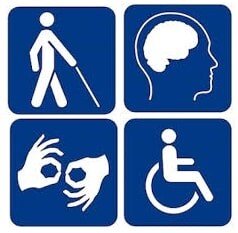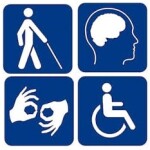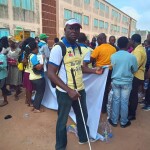The federal government has added another bundle of rights of people with disabilities to the litter of laws, treaties, and protocol already in its kitty.
The African Disability Protocol (ADP), a continental treaty to promote inclusion, has been adopted by Nigeria thanks to the Equal World campaign efforts by Sightsavers, an international NGO.
Joy Tarbo, Nigeria’s communications associate of the organization, said Nigeria signed on in Addis Ababa, Ethiopia, on February 13.
According to Sunday Isiyaku, country director, Sightsavers, the organization is delighted to have supported the government in signing the African Disability Protocol.
The ADP is the first on the continent which the AU adopted in 2014, and ratified in 2018.
“This is a significant step towards creating a more inclusive society where the rights of people with disabilities are respected and protected,” he said.
James Lalu, the executive secretary, National Commission for Persons with Disabilities, described the treaty as a historic moment for Nigeria and for people with disabilities across Africa.
“The signing of the African Disability Protocol demonstrates our commitment to promoting the rights of people with disabilities and ensuring that they are included and valued members of our society.”
Like others before it, the ADP provides a comprehensive framework for the protection and promotion of the rights of people with disabilities in Africa, including the right to education, employment, healthcare, and accessibility.
Nigeria is already a signatory to the UN Convention on the Rights of PWDs; it has its own 2018 Discrimination Law; and the Violence Against Persons Prohibition Law, among others, catering to the rights of PWDs in Nigeria. Lagos has its own Special People Law.
The chairman of the Lagos chapter of the Nigeria Association of the Blind, Lukman Salami, earlier told ER Nigeria has enough domestic laws to ensure equality and inclusion for the PWDs.
“If those laws are implemented, Nigerian won’t need to be signing international treaties,” he said.
Angola, Burundi, Kenya, Mali and Rwanda have already signed on to the ADP, needing about 10 more signatories to become a law.
The final step after signing will be for the government to fully ratify the treaty.







